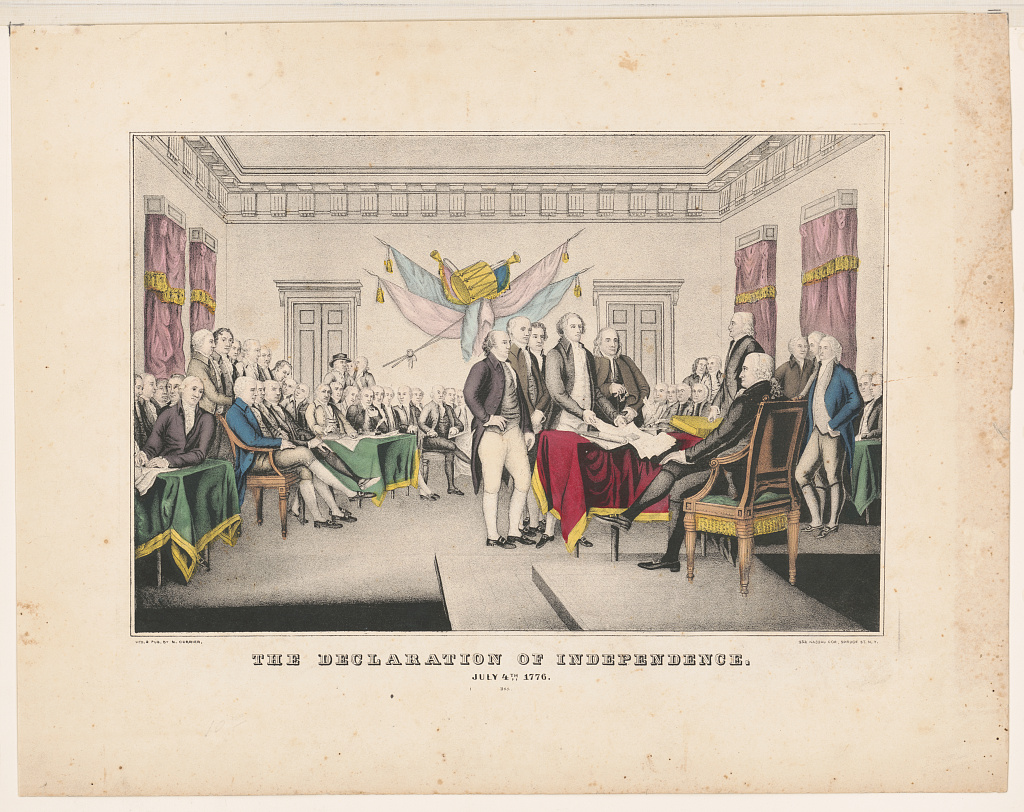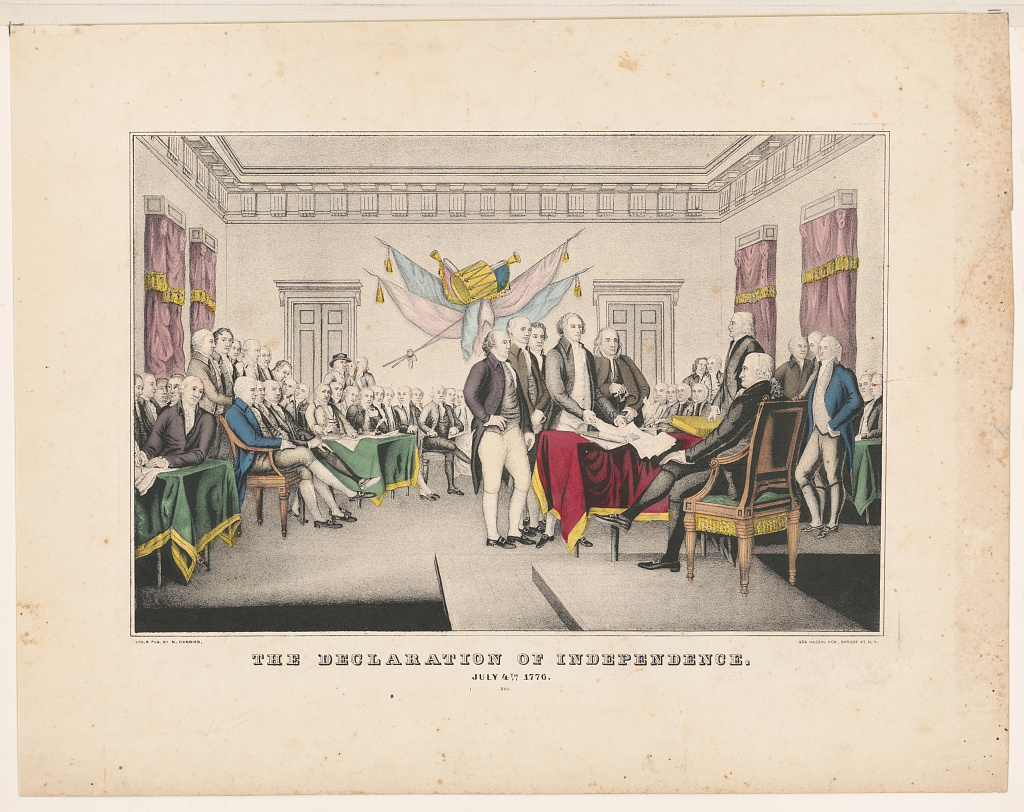Originally Authored at TheFederalist.com

While other media outlets focused on the historic reelection of Donald Trump, the thrill of victory, and the agony of defeat, The Hill offered its readers a summary of what the president-elect has said he intends to do on Day One. This extensive to-do list includes restoring American energy independence, pardoning the Jan. 6 protestors, and, of course, cracking down on illegal immigration.
I would like to offer a modest addition to this impressive agenda: Trump should issue an executive order to restore his all-but-forgotten 1776 Commission. Given the Democrats’ efforts to gaslight the electorate into believing that Trump’s reelection is a “threat to democracy,” young Americans’ historical and civic illiteracy is a clear and present danger to the Republic and it cannot be allowed to continue.
A Doomed Initiative
Trump created the commission the day before Election Day in 2020 with the purpose of “[establishing] a clear historical record of an exceptional Nation dedicated to the ideas and ideals of its founding.” Its goal was to provide a much-needed corrective to anti-American propaganda masquerading as history such as the “1619 Project,” whose “radicalized view of American history lacks perspective, obscures virtues, twists motives, ignores or distorts facts, and magnifies flaws, resulting in the truth being concealed and history disfigured.” The commission’s report, published two days before Trump left office, sketched out a basic curriculum that balanced American exceptionalism as reflected in the Declaration of Independence and the Constitution with the darker aspects of our history, such as slavery and Jim Crow.
Predictably, the usual suspects had a hissy fit. NBC News accused the commission of “whitewashing historical narratives,” while professional race-baiter Ibram X. Kendi called the report “the last great lie from a Trump administration of great lies.” The journal Foreign Policy published a hatchet job from a grad student “expert” likening the commission’s recommendations to the educational policies of authoritarian regimes like Russia and China.
The unkindest cut of all came from the American Historical Association, which abandoned all pretense of scholarly objectivity by slandering the report as a “call for a form of government indoctrination of American students [that would] elevate ignorance about the past to a civic virtue.”
The new administration heard the message loud and clear. A day after taking the oath of office, President Biden spiked the commission along with most of the other common-sense policies of his predecessor.
You Can’t Love Something You Don’t Know
Leftist educrats have spent decades undermining their students’ love for their native land. The goal of this continuing subversion is to ensure that, in the words of Trump’s executive order, “authoritarian visions of government and society … become increasingly alluring alternatives to self-government based on the consent of the people.”
Montesquieu made a critical point about education in republics in Book IV of his masterpiece The Spirit of Laws:
It is in a republican government that the whole power of education is required…Virtue is a self-renunciation, which is ever arduous and painful. This virtue may be defined as the love of the laws and of our country. As such love requires a constant preference of public to private interest, it is the source of all private virtues…This love is peculiar to democracies. In these alone the government is entrusted to private citizens. Now a government is like everything else: to preserve it we must love it…Everything therefore depends on establishing this love in a republic; and to inspire it ought to be the principal business of education. [emphasis added]
The educational establishment’s rejection of this sage advice has borne bitter fruit. In the 30 years since the National Assessment of Educational Progress has been measuring scores in history and civics, American middle schoolers have never been declared “proficient” in these subjects.
In an unsurprising correlation, over the past 20 years the number of people claiming to be “extremely proud” to be an American has dropped from 70 percent to a paltry 39 percent. This collapse of patriotism is most notable among Americans ages 18 to 34, where the percentage drops to a mere 18 percent. No wonder the American military is struggling to meet recruitment goals. Why would any young person elect to serve a nation they have been brainwashed into thinking is evil?
A Necessary Inoculation against Tyranny
The Democrats have taken full advantage of this cultivated ignorance to attack our nation’s institutions. When party leaders clutch their pearls about the fate of American democracy in the face of a Trump presidency, they are engaging in a level of projection rarely seen outside of an IMAX theater.
Even if their hypocrisy wasn’t blatant in their multi-pronged yet futile efforts to defeat Donald Trump, there is more than enough cause for concern in their rhetoric. This is the party whose members now routinely call for the abolition of the Electoral College and the packing of the Supreme Court. Flirtations with even more radical “reforms,” such as making Senate representation based on a state’s population, are becoming more common. Add to this the left’s penchant for political violence and you have a party on the edge of embracing tyranny.
The only antidote for this extremism is a body politic that understands the whys and hows behind the American system. Anyone with a solid grasp of American history and civics will instantly see authoritarian ideas for the betrayal that they are and reject them accordingly.
Making America great again starts with reminding the American people why the nation was and is great. The mandate Trump received on Election Day proves that the patient is not yet past all hope. As our country approaches its 250th birthday, a revived 1776 Commission can provide the strong medicine it needs to survive and thrive.
Robert Busek is a Catholic homeschooling father of six who has taught history and Western Civilization in both traditional and online classrooms for over twenty years. His essays have also been published in The American Conservative and The American Spectator. The views he expresses here are his own.
